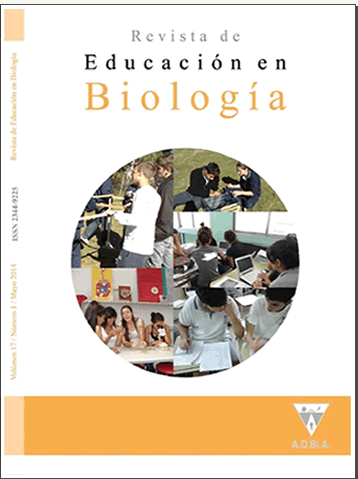School Scientific Argumentation at and its Contribution to the Learning of a Complex Model of Health and Disease
Main Article Content
Abstract
This paper approaches the existing relationship between the learning of “school scientific argumentation” and the acquisition of a complex model of health and disease,
more specifically to explain the emergence and re-emergence of diseases. It is assumed
that school scientific argumentation is a linguistic-cognitive procedure which leads to the
production of a text that explains a topic in which four key domains can be recognized:
pragmatics, rhetoric, theory and logics. A historic-epistemological analysis of health as a
concept was performed and the stance adopted was in favor of a complex model defined as
multi-causal and multi-referential. A didactic unit was designed to teach both concepts with
emphasis on the metacognitive and self-regulatory processes set into motion through the
basis of orientation and instances of self-evaluation, co-evaluation and hetero-evaluation.
The study is aligned in a model of illocutionary explanation.
more specifically to explain the emergence and re-emergence of diseases. It is assumed
that school scientific argumentation is a linguistic-cognitive procedure which leads to the
production of a text that explains a topic in which four key domains can be recognized:
pragmatics, rhetoric, theory and logics. A historic-epistemological analysis of health as a
concept was performed and the stance adopted was in favor of a complex model defined as
multi-causal and multi-referential. A didactic unit was designed to teach both concepts with
emphasis on the metacognitive and self-regulatory processes set into motion through the
basis of orientation and instances of self-evaluation, co-evaluation and hetero-evaluation.
The study is aligned in a model of illocutionary explanation.
Article Details
How to Cite
Chion, A. R. (2014). School Scientific Argumentation at and its Contribution to the Learning of a Complex Model of Health and Disease. Journal of Biology Education, 17(1), (pp. 145-148). https://doi.org/10.59524/2344-9225.v17.n1.22423
Section
Tesis

This work is licensed under a Creative Commons Attribution-NonCommercial-ShareAlike 4.0 International License.
Aquellos autores/as que tengan publicaciones con esta revista, aceptan los términos siguientes:- Los autores/as conservarán sus derechos de autor y garantizarán a la revista el derecho de primera publicación de su obra, el cuál estará simultáneamente sujeto a la Licencia de reconocimiento de Creative Commons que no se permite un uso comercial de la obra original ni de las posibles obras derivadas, la distribución de las cuales se debe hacer con una licencia igual a la que regula la obra original.
- Los autores/as podrán adoptar otros acuerdos de licencia no exclusiva de distribución de la versión de la obra publicada (p. ej.: depositarla en un archivo telemático institucional o publicarla en un volumen monográfico) siempre que se indique la publicación inicial en esta revista.
- Se recomienda a los autores/as difundir su obra a través de Internet (p. ej.: en archivos telemáticos institucionales o en su página web) después del proceso de publicación, lo cual puede producir intercambios interesantes y aumentar las citas de la obra publicada. (Véase El efecto del acceso abierto).
How to Cite
Chion, A. R. (2014). School Scientific Argumentation at and its Contribution to the Learning of a Complex Model of Health and Disease. Journal of Biology Education, 17(1), (pp. 145-148). https://doi.org/10.59524/2344-9225.v17.n1.22423

